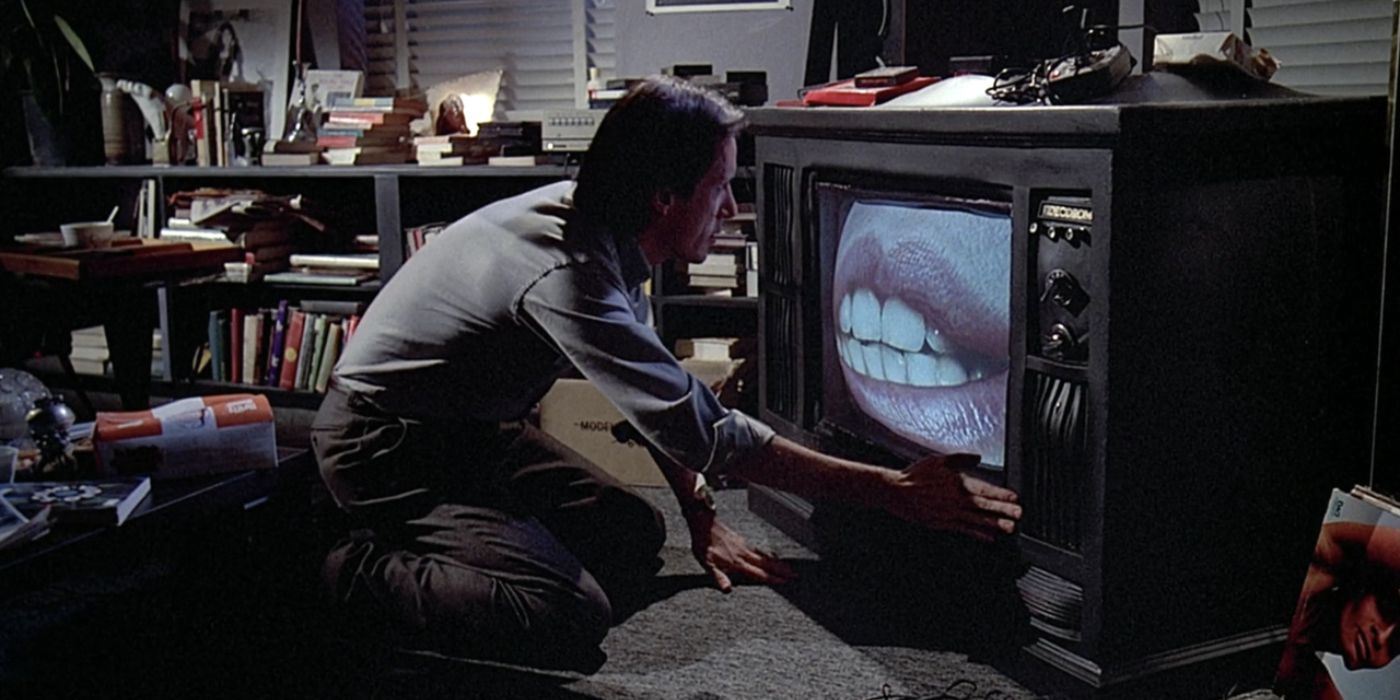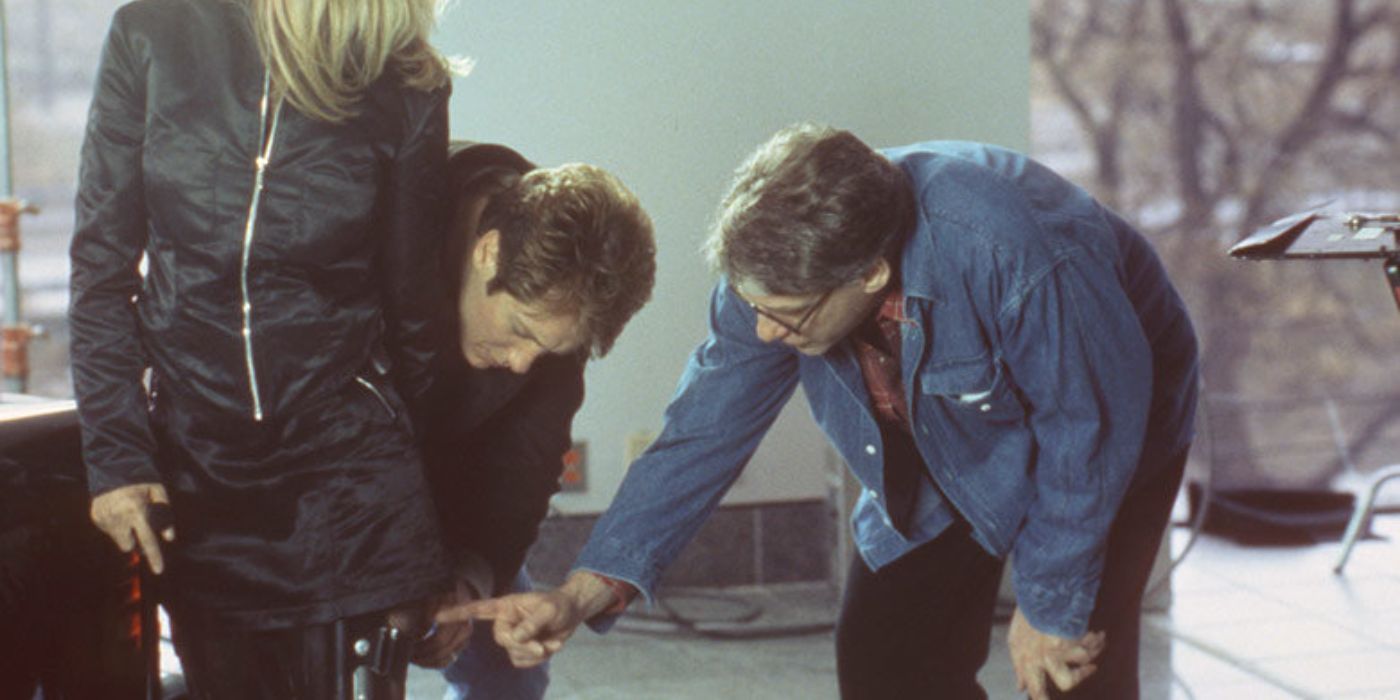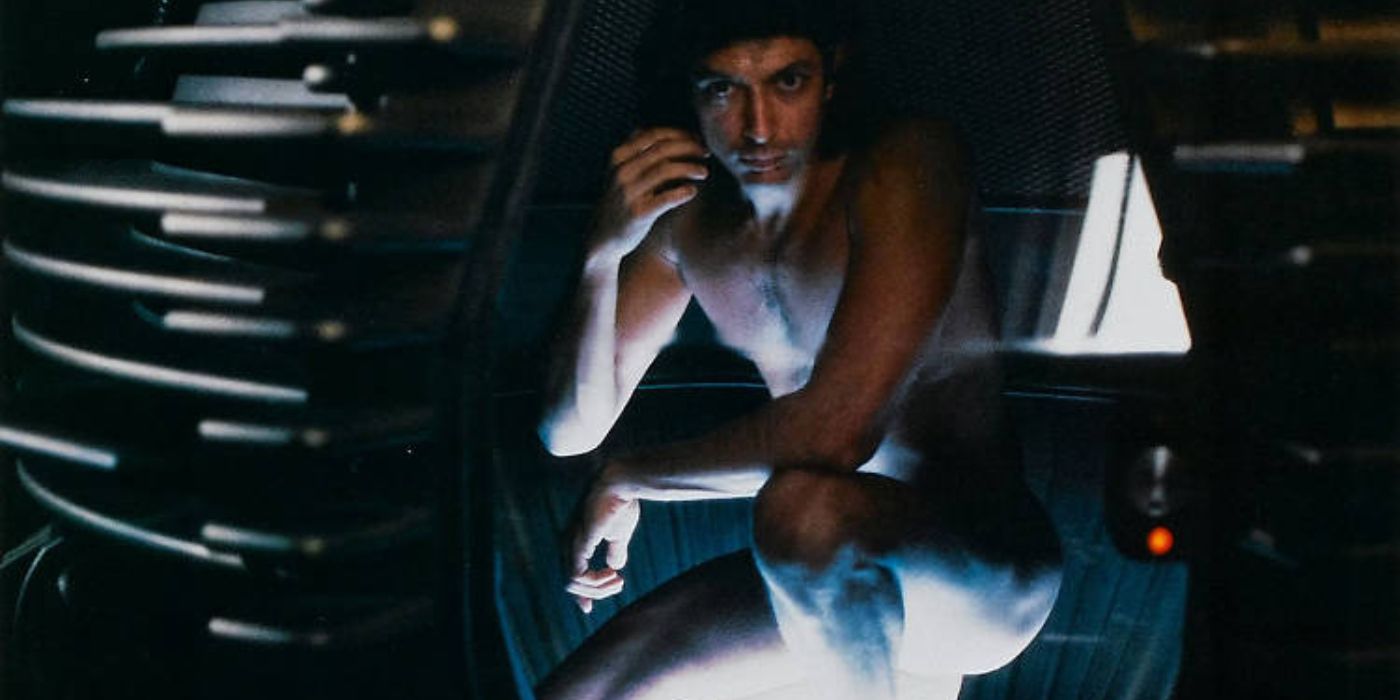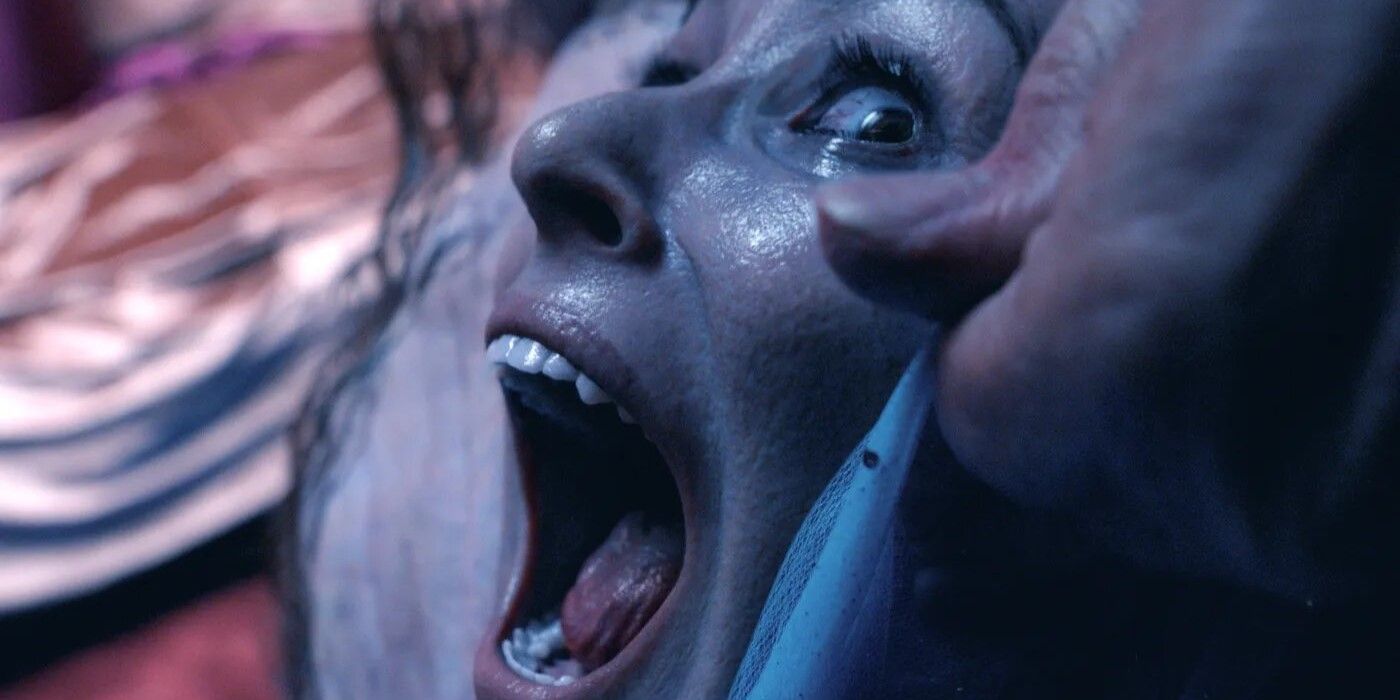
The genre, particularly renowned for nurturing some of the most influential directors in cinematic history, has David Cronenberg as a notable standout, often considered among the elite. Pioneering his unique sub-genre within the horror realm, Cronenberg’s “body horror” works have earned a deep affection from audiences in recent times.
Films such as “The Fly”, “Videodrome”, and “Crimes of the Future” demonstrate David Cronenberg’s exceptional skill in depicting the human body in its unsettling grandeur. Among his masterpieces, one of his finest works – and a standout demonstration of his body horror style – remains one of his lesser-known films: the 1996 release, “Crash”.
Crash Is Cronenberg’s Psychological Odyssey Through Desire and Despair
The Bleak and Harrowing Film Portrays Some of the Most Intense Aspects of the Human Condition
In a departure that is characteristic of his filmmaking style, David Cronenberg’s movie “Crash” stands out as perhaps his most challenging work. The film is richly layered with intense violence, mature language, deep themes, and explicit sexual content. As the screen adaptation of J.G. Ballard’s 1973 novel, Crash explores a group of individuals who find themselves drawn to car crashes after surviving near-fatal accidents, experiencing both a sexual and psychological fascination with these incidents. Given the similarities between the novel’s themes and Cronenberg’s creative vision, it’s no surprise that he chose to bring this story to life on the silver screen.
Exploring the complexities of human relationships and our distorted bond with the rapidly advancing technological realm, the film Crash carries a distinctly dystopian tone in its exploration of the human condition. Its grim, pessimistic portrayal of the world is so intense that it leaves viewers feeling overpowered – a reaction understandably avoided by audiences at the time of its release due to its dark themes. Although some of David Cronenberg’s previous works were challenging and aggressive in their themes, Crash took his storytelling style to unprecedented heights. While the film may not be as heavily science-fiction as some of Cronenberg’s other works, its overall atmosphere gives it an apocalyptic feel, as if humanity has been swallowed by the relentless march of machinery.
David Cronenberg has consistently been captivated by the intricacies of the human body and its interactions with the environment, and Crash serves as a powerful testament to this theme. Filled with anger, fear, and aggression, this thriller portrays humans as casualties of a world that encases them in unfeeling, metallic structures. The intriguing aspect of this film lies in its exploration of the erotic, psycho-sexual transformation that such an environment induces. It is this very element that keeps Cronenberg’s Crash relevant even after nearly thirty years. This isn’t merely a movie about the world stripping humanity from us; it delves into how we adapt to such circumstances. It offers a compelling viewpoint on a distressing topic, and manages to dissect the essence of human expression in ways that less provocative films often fail to accomplish.
Cronenberg’s Other Films Have Explored Similar Ideas, But None Have Succeeded Like Crash
The Director’s More Popular Films Touch On Similar Themes In More Accessible Ways



In 1986, David Cronenberg’s masterpiece, The Fly, featuring Jeff Goldblum, captivates viewers in a unique way. The transformation at the heart of the film serves as a relatable entry point for audiences to grapple with its profound themes. It’s more palatable for us to confront Cronenberg’s bold ideas when they’re framed within the context of straightforward science fiction. While The Fly‘s special effects and body horror may be unsettling, they don’t evoke the same deep-seated emotions that Crash does.
As a movie enthusiast, I find myself drawn to two distinct categories of films: those that offer a level of detachment, like The Fly, which is a chilling sci-fi tale about a man transforming into an animal, and those that force me to confront reality head-on, such as Crash. While The Fly is a work of fiction, it’s easy to step back and appreciate its horror. On the other hand, Crash is a different beast entirely. It delves into the raw, unfiltered truths of contemporary society, making it difficult for viewers to maintain any sense of distance. This film is about real people grappling with a rapidly changing world, and that’s what makes it so profoundly unsettling. Unlike films like The Fly, Crash doesn’t allow for an easy escape; instead, it compels viewers to sit, ruminate, and grapple with their emotions. It’s a messy, uncomfortable, even shameful experience, but that’s precisely why it’s so effective. Every individual harbors strange, private desires, and the characters in Crash have been transformed in ways that they can no longer conceal these hidden aspects of themselves.
Beyond his obsession with bodily transformations and adaptations, Cronenberg employs the film “Crash” to delve into his broader curiosity about human sexuality. The emotional and mental aspects of sexual desire are central to much of his oeuvre, and “Crash” might be the most significant demonstration of this theme. Contrary to expectations based on its NC-17 rating, the explicit sex scenes in “Crash” are not as graphic as one might assume. Instead, they are heavily laden with emotion and psychology, focusing more on dialogue and character development during the sexual encounters than on the actual physical acts. This subtle distinction is crucial when analyzing Cronenberg’s work holistically.
Crash Is The Kind of Film That Audiences Want More of Today
The Rise of “Elevated Horror” In The Indie Sphere Indicates An Interest In Challenging Films




Although Paul Haggis has produced films over the years since the release of Crash, none have matched the prescience, engagement, or controversy of his J.G. Ballard adaptation. Films such as Cosmopolis, A History of Violence, and others in his extensive filmography are commendable additions to his career, but they don’t resonate with audiences like his earlier works did. In today’s cultural landscape where thought-provoking and controversial art is more valued than ever, it seems that films like Crash hold significant relevance.
The once taboo and graphic themes in films like Crash have become commonplace in the independent horror genre, which is a testament to how far we’ve come. Art is designed to challenge boundaries and spark thoughts and emotions from viewers, and this is more achievable today than it ever was before.
Contemporary viewers embrace the unsettling; they are receptive to being challenged and even shocked. This openness is a testament to the flourishing independent horror scene in the 21st century. With reduced censorship, an influx of creative filmmakers producing art, and a palpable audience enthusiasm, the future looks promising for psychological horror akin to Crash. A recent film mirroring Cronenberg’s earlier works is director Julia Ducournau’s 2021 masterwork, Titane, a French production delving into human connections, both physical and emotional. It serves as one of the most authentic prime-era Cronenberg film experiences in recent years and stands among the best body horror films of the past decade.
Movies like the acclaimed recent film “The Substance” have left audiences spellbound with their graphic scenes, political undertones, and groundbreaking storytelling. The fact that this movie was showered with praise, even earning multiple Academy Award nominations, highlights the current audience’s appetite for such films. “Crash,” which set a benchmark for erotic psycho-sexual thrillers, has paved the way for today’s independent filmmakers to explore even more daring territories. If David Cronenberg’s masterful work, “Crash,” were released today, it would likely garner the same positive response from both audiences and critics as films like “The Substance” or “Titane.” Although Cronenberg is renowned for his earlier works such as “The Fly” and “Videodrome,” his undervalued 1996 gem, “Crash,” could eventually secure its place among the most influential horror films ever made, given the evolving nature of film viewing, criticism, and production.
Read More
- Clash Royale Best Boss Bandit Champion decks
- Vampire’s Fall 2 redeem codes and how to use them (June 2025)
- Mobile Legends January 2026 Leaks: Upcoming new skins, heroes, events and more
- World Eternal Online promo codes and how to use them (September 2025)
- How to find the Roaming Oak Tree in Heartopia
- Clash Royale Season 79 “Fire and Ice” January 2026 Update and Balance Changes
- Best Arena 9 Decks in Clast Royale
- Clash Royale Furnace Evolution best decks guide
- Best Hero Card Decks in Clash Royale
- FC Mobile 26: EA opens voting for its official Team of the Year (TOTY)
2025-05-19 20:06